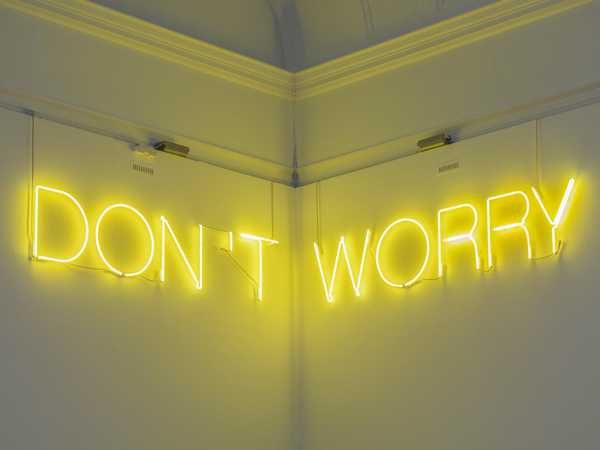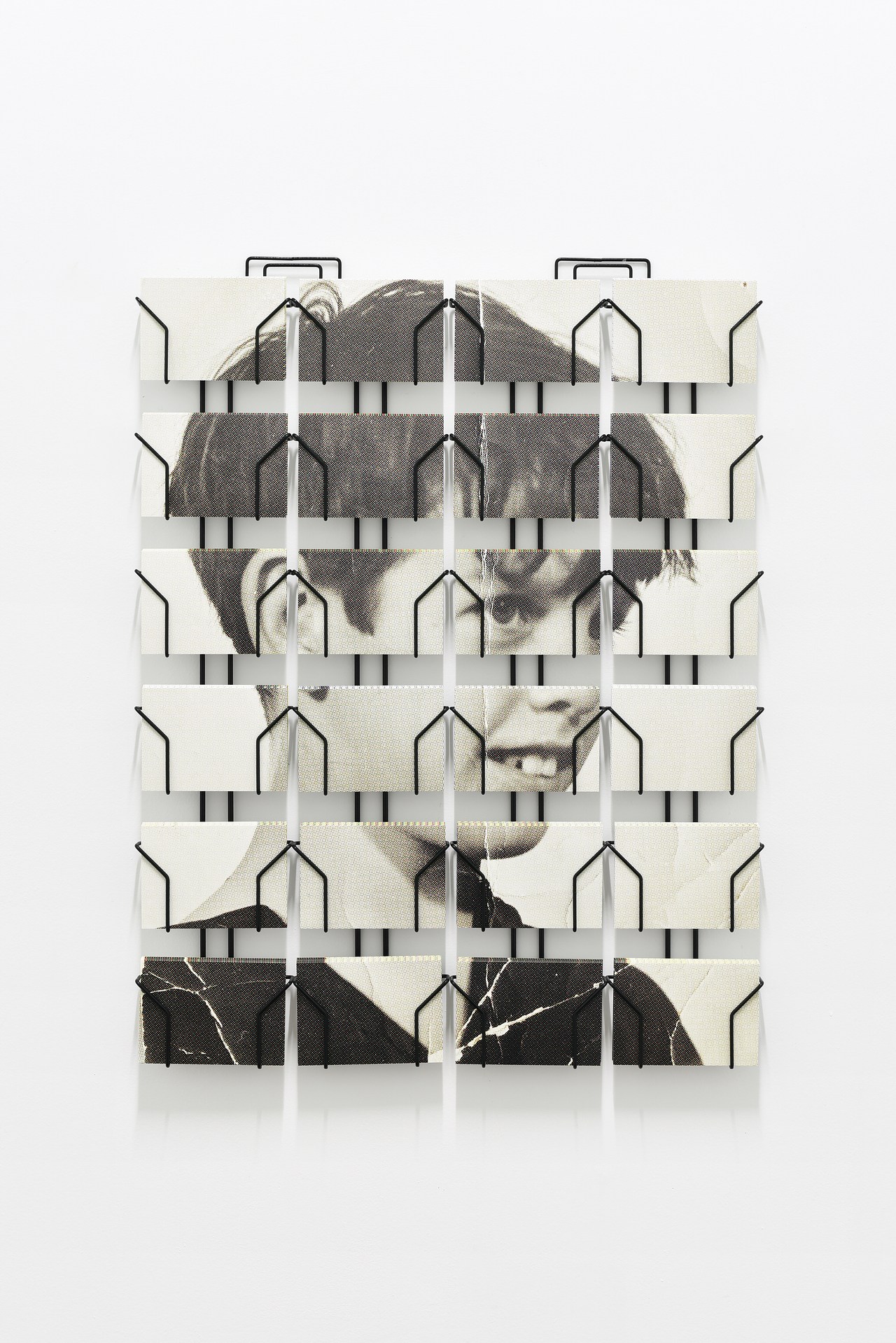20
2012 - Photography (Photography)
Chris Wiley
Architectural details become abstracted renderings in Chris Wiley’s inkjet prints 11 and 20 (both 2012). In photographing seemingly mundane images of doorways and walls, Wiley collapses the viewer’s experience of inhabiting space by foregrounding features that we all too often miss in our built environment: the peeling white paint on a Corinthian column or the rusty studs on a blue door.
Chris Wiley produces photographs that question how we experience our built environments. Trained in contemporary art theory, his practice interrogates notions of the real by subverting familiar tropes in architectural photography. His prints do not depict buildings and structures in their entirety. Instead, Wiley chooses to depict individual details and forms that are often lost in long-shot photography. His images deliberately flatten three-dimensional objects into dense composites of texture, color, and shape and heighten our attenuation to how we see the world around us, offering fragments of perceptual space that privilege sensory experience over narrative and form over content.
Colors:
Related works featuring themes of: » Brooklyn Artists, » New York Artists, » Photography, » United Kingdom and Ireland, » British

© » KADIST
Keith Tyson
The work of Keith Tyson is concerned with an interest in generative systems, and embraces the complexity and interconnectedness of existence...

© » KADIST
Ryan Gander
2012Epiphany…learnt through hardship is composed of a bronze sculpture depicting the model of the little dancer of Degas, in the pose of a female nude photographed by Edward Weston (Nude, 1936) accompanied by a blue cube...

© » KADIST
Ian Wallace
1986Wallace says of his Heroes in the Street series, “The street is the site, metaphorically as well as in actuality, of all the forces of society and economics imploded upon the individual, who, moving within the dense forest of symbols of the modern city, can achieve the status of the heroic.” The hero in Study for my Heroes in the Street (Stan) is the photoconceptual artist Stan Douglas, who is depicted here (and also included in the Kadist Collection) as an archetypal figure restlessly drifting the streets of the modern world...

© » KADIST
Jeremy Deller
2012Beyond the White Walls , with a commentary written and spoken by Jeremy Deller, is often wryly amusing...

© » KADIST
Ian Wallace
2000Untitled (Breathless) presents a folded newspaper article on Jean-Luc Godard’s À Bout de Souffle (Breathless)...

© » KADIST
Tomoko Yoneda
2010Yoneda’s Japanese House (2010) series of photographs depicts buildings constructed in Taiwan during the period of Japanese occupation, between 1895 and 1945...

© » KADIST
Simon Starling
2007Invited in 2007 to the Museum Folkwang in Essen (Germany), Simon Starling questioned its history: known for its collections and particularly for its early engagement in favor of modern art (including the acquisition and exhibition of works by Cézanne, Gauguin, Van Gogh, Matisse), then destroyed during the Second World War, the museum was pillaged for its masterpieces of ‘degenerate art’ by the nazis...

© » KADIST
Rosalind Nashashibi
2019Rosalind Nashashibi’s paintings incorporate motifs drawn from her day-to-day environment, often reworked with multiple variations...

© » KADIST
Rodrigo Braga
2009Braga’s video work Provisão (2009) opens with a still shot of a clearing in a forest, shoots of grass emerging from a muddy brown patch of seemingly dry and barren earth...

© » TATE EXHIBITIONS
Martin Creed
Martin Creed | The Dick Institute Experience the work of one of this country’s most ingenious, audacious and surprising artists at the Dick Institute ARTIST ROOMS Martin Creed presents highlights from the British artist’s thirty-year career...

© » KADIST
Ian Breakwell
2008“BC/AD” (Before Cancer, After Diagnoses) is a video of photographs of the artist’s face dating from early childhood to the month before he died, accompanied by the last diary entries he wrote from April 2004 to July 2005 (entitled “50 Reasons for Getting Out of Bed”), from the period from when he lost his voice, thinking he had laryngitis, through the moment he was diagnosed with lung cancer and the subsequent treatment that was ultimately, ineffective...

© » KADIST
Tacita Dean
2001The photographic quality of the film Baobab is not only the result of a highly sophisticated use of black and white and light, but also of the way in which each tree is characterized as an individual, creating in the end a series of portraits...

© » KADIST
Anthony McCall
1973The film Line Describing a Cone was made in 1973 and it was projected for the first time at Fylkingen (Stockholm) on 30 August of the same year...







